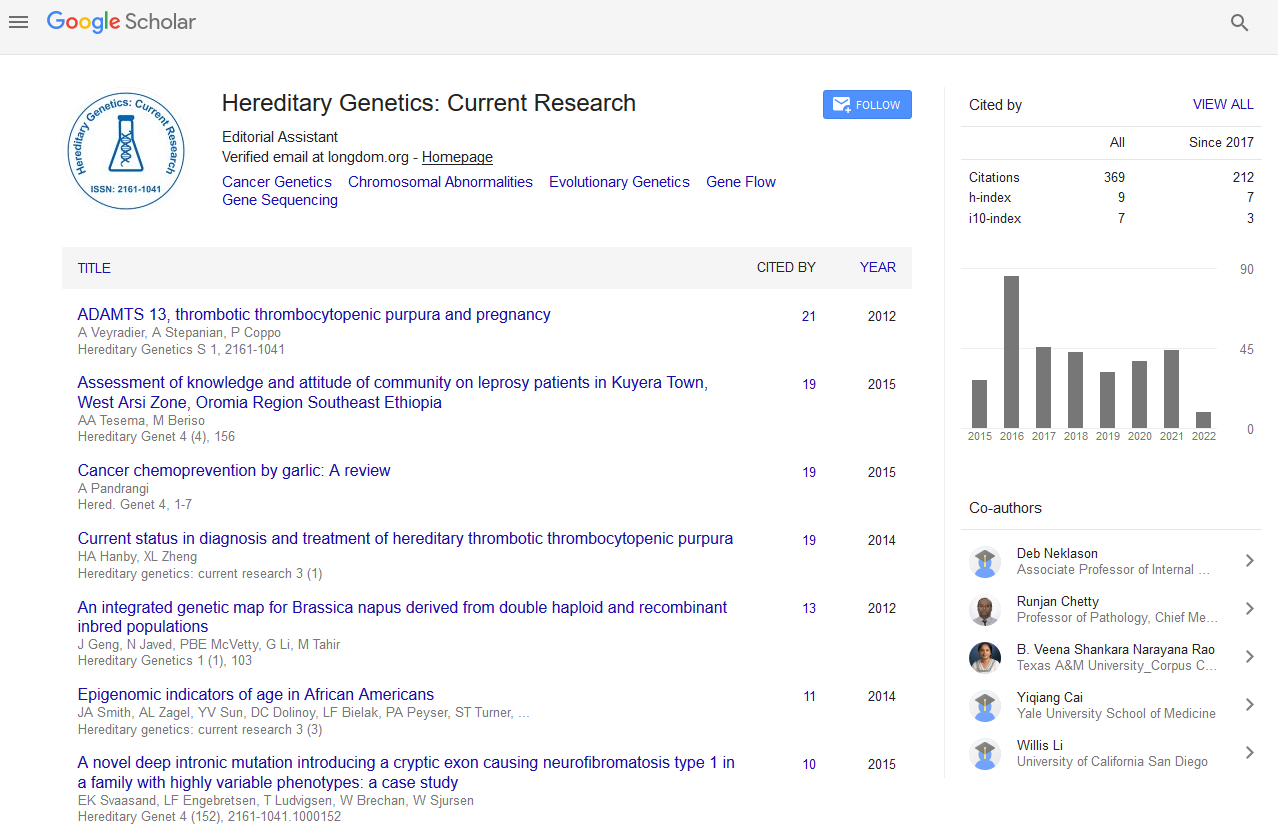PMC/PubMed Indexed Articles
Indexed In
- Open J Gate
- Genamics JournalSeek
- CiteFactor
- RefSeek
- Hamdard University
- EBSCO A-Z
- NSD - Norwegian Centre for Research Data
- OCLC- WorldCat
- Publons
- Geneva Foundation for Medical Education and Research
- Euro Pub
- Google Scholar
Useful Links
Share This Page
Journal Flyer

Open Access Journals
- Agri and Aquaculture
- Biochemistry
- Bioinformatics & Systems Biology
- Business & Management
- Chemistry
- Clinical Sciences
- Engineering
- Food & Nutrition
- General Science
- Genetics & Molecular Biology
- Immunology & Microbiology
- Medical Sciences
- Neuroscience & Psychology
- Nursing & Health Care
- Pharmaceutical Sciences
Abstract
Implication of the Strand-Specific Imprinting and Segregation Model: Integrating in utero Hormone Exposure, Stem Cell and Lateral Asymmetry Hypotheses in Breast Cancer Aetiology
Singh Harbinder, Carol A Lazzara and Amar JS Klar
Known genetic mutations and familial hereditary factors account for less than 20–25% of breast cancer cases in women, therefore, most instances have been classified as sporadic cases of unknown aetiologies. Single nucleotide polymorphisms (SNPs) were considered as breast cancer risk factors, but numerous studies have failed to support this assertion. Recent evidence correlates aberrant epigenetic mechanisms in the development and metastatic progression of breast cancer, yet there has been limited progress made to identify the primary aetiology underlying sporadic cases of breast cancer. This has led some researchers to consider alternative hypotheses including in utero exposure to deleterious chemical agents during early development, the immortal strand and the strand-specific imprinting and selective chromatid segregation hypotheses. Here, we integrate prominent alternate models to help guide future research on this very important topic concerning human health.


